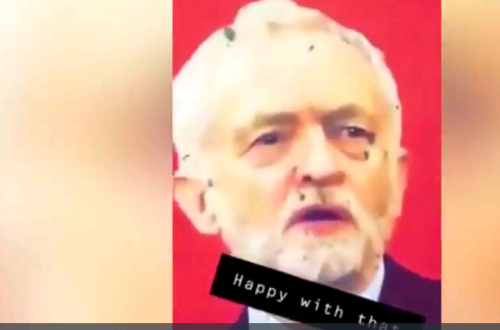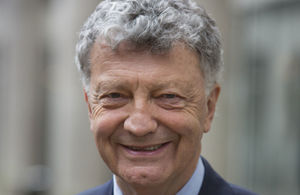Beyond the public image of happy hippiedom of Scottish nationalism which the SNP cultivates is an authoritarian anti-liberal tendency to seek control of all state organs for both nefarious reasons and power for its own sake.
One striking example has been the amalgamation of regional Police forces into one Strathclyde-dominated gendarmerie against the wishes of rank ‘n file officers both for operational reasons and the damage done to their career prospects. At the time, this was justified by Alex Salmond through his typically annoyingly asinine alliteration as “bobbies not boundaries”.
Yet, as now is being seen, bobbies (or, as we should say now in the Calvinistic Republic of North Britain) polis are falling and those high-cost officers who remain are spending more time on routine administration which previously was conducted by lower-paid support staff in now-curtailed operation centres.
And that is before we get onto Stephen – whose bus you either are in or under – House taking his Glasgow-style policing up several levels. This includes massive dragnet of stop and search predominately across the Rust Belt which has netted more ‘suspects’ than in the Metropolitan Police area which has larger population than all Scotland and wildly different crime dynamics.
Or the routine deployment of armed officers in crime hotspots such as Inverness. This was started without any oversight from or apparent concern by Holyrood committees and the then Justice Secretary, Kenny Macaskill, including what looked liked a bare-faced lie that there was public support.
With tasteless audacity, House had suggested armed officers could have prevented the Dunblane massacre.
Then, just as soon as the referendum was out of the way, it was reported that the policy was over. Except it did not.
For the bean counters, one entirely foreseen effect of the amalgamation was of the loss of exemption under section 33 of the 1994 VAT ACT for regional forces. Or, more accurately, for local authorities purchasing services from regional forces.
The result has been a bill for the public purse in the area of £23 millions which House responded to:
“I’m not a tax expert by any shape of the imagination, but I do find it bewildering that we seem to be the only police service in the UK which is charged VAT.
“None of the 43 police forces in England and Wales pay it and the answer seems to come back from the Treasury that it’s because you’re a central government organisation.
“But the Police Service of Northern Ireland, they don’t pay VAT. And you’ve got the National Crime Agency; they don’t pay VAT. But we pay VAT.
“I just don’t understand the logic of it and I don’t think the Scottish Government understand the logic of it either.”
You are right, you are not a tax expert. Despite your and the Scottish Government being plainly cautioned by the Civil Service – as far back as August 2011 – that with the transfer from local authority to central government control/funding this would lapse. The various examples you site – from PSNI to the NCA or even the BBC and academy schools in England & Wales – either were exceptional examples or arose from changes to EU/UK VAT rules: unlike the pretendy Government in Holyrood which chose to impose these changes against just about everyone’s wishes.
See correspondence between the then Cabinet Secretary at the Scottish Government, Kenny Macaskill (page one and two) and the then Exchequer Secretary to the Treasury, David Gauke (page one and two) from June/July 2012. They knew about it but when ahead anyway: I mean, did they not have a competent committee system to put a fork in howlers like this?
I mean, did you not have a competent committee system to spot howlers like this?
The new Scottish Fire and Rescue Service also was reported to be facing an additional tax bill of £4 millions, although something seems off. In the Sutherland-area, local part-time stations are facing the removal of onsite air compressors which replenish breathing apparatus after use. These are about the size of a fridge and are put to immediate use after returning from a call-out.
Any servicing is done by a mechanic who visits the various stations for other tasks. Without onsite facilities, engines would have to make round-trips of up to 80 miles to one of the two or three larger stations which would retain them. At the very least, it looks like robbing Peter to pay Paul.
The reason given is cost-saving in face of higher than expected bills, which presumably includes the expected VAT; as the Holyrood Justice Committee implied in April.)
What seems odd is VAT Notice 749 which appears to give a get-out clause. Although the voluntary dissolution of the regional fire services and formational of a new organization took them out of the terms of Section 2.1, Section 2.4 appears to allow them to apply for exemption when they “undertake a function ordinarily carried on by local government, and have the power to draw its funding directly from local taxation”.
I am not a tax expert, and perhaps council tax no longer can go to fund regional divisions of the fire service, but the case does look stronger than for Police Scotland.
I wonder what is going on.


